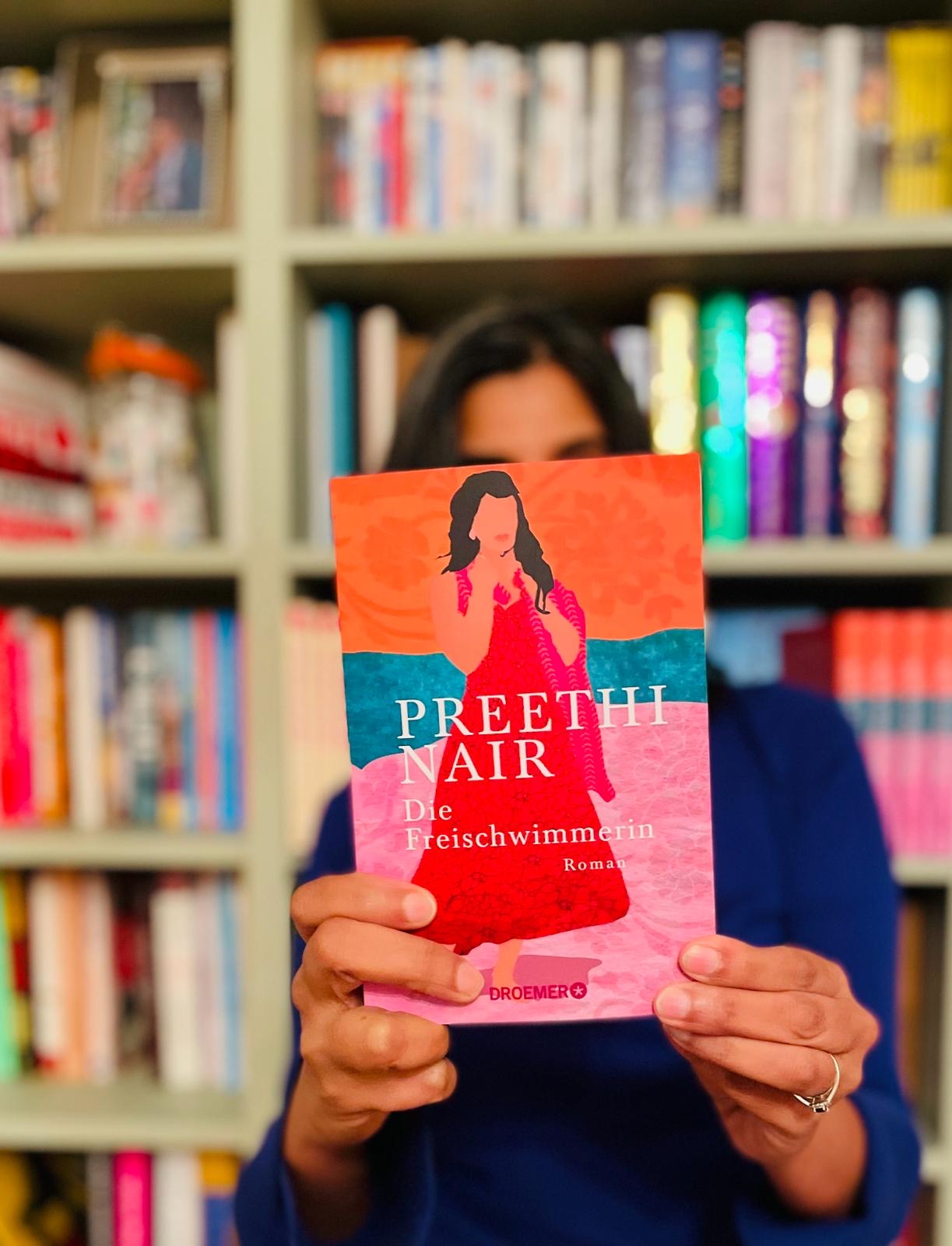Life at 30 was published in the Daily Telegraph in three parts.
Part One
“By the time she is 30, she will be having a husband coming from a very good family, I see two boys born within a year of each other and a very big house. Yes, it is almost like a rajah’s palace. One warning though: she must be careful with her weight, for she will be fat, almost unable to move, for the wealth she consumes.”
This is what the astrologer told my parents in a bid to reassure them when they went to consult him as to why I was not married at 25.
I am now 33. None of the above has happened. In Indian terms, I am passed my sell-by date, well and truly consigned to the back shelf of the larder with the old stash of chapatti flour. Relatives have stopped pitying me, focusing instead on young Janaki, who at 23 is bursting with marriage potential and whose biological clock is melodically ticking, as opposed to mine that supposedly exploded on my thirtieth birthday.
“I mean who would even think of having children after thirty?” asked my aunt as I blew out the candles. So the only children that are ever mentioned are the grand children (my brother’s children) and the children born to my contemporaries in Kerala, South India.
Having detonated every single one of my parents’ aspirations (stable career with lots of money, husband and two children), for me, life has truly begun at 30. There are no rules anymore, no expectations. There is no need to put on a suit and pretend to go to work as I did in my 20s (sad but true). I had led a double life for most of my 20s. It is a long story, but basically, I wanted to be a writer and so left my job as a management consultant, thinking that I, too, would be sipping red wine and signing books.
However, things did not go to plan as I got rejected by every publisher. I then took the deposit from the flat I was about to buy and had this crazy idea to set up my own publishing company and PR company. Headed by my alias Pru Menon, she/I hyped my novel, got it into the London book charts and sold it off as part of a three-book deal to HarperCollins – all whilst waving my parents off as I pretended to catch the tube to work and whilst giving them false hope that they, too could soon sent out the wedding invitations.
There is no list system now. The list system is a preferred system of potential suitors. First choice – well-educated, professional Keralan boy; second – preferably of Asian decent; and so forth. But this has been shredded. My mother said to me the other day: “Bring anyone home, if you want to have a baby and are not married, that’s OK by us too.”
Being caught between cultures where 30 is retirement age and 30 is the new 20 is fantastic. It’s like looking in the mirror, knowing you have defied fate and seeing all sorts of possibilities. I’m living in a culture where eggs can be frozen as opposed to curried and fed to husband and children. Knowing that I haven’t stuffed my face with all those ledos and barfis (as predicted by the astrologer), but am happily still doing Cobra, Stretch pose, Downward dog and still defying gravity, gives me a certain sense of satisfaction.
Living in England, the only downside to 30 is choice – latte, mocha, expresso, frappe, cappuccino, decaf, as opposed to your good old Keralan coffee with sugar already added. And secretly, I am fearing what I am going to do now the list system has been scrapped. Before it was, get introduced by your parents (all leg work done by them i.e. dark secrets exposed, major incompatibilities and annoying habits pre-screened) exchange a few embarrassed smiles, decide if you like the look of each other and then get married.
Now, with the whole of the United Nations’ pool of men opened up to me, where do I start? And who can I blame if it all goes horribly wrong?
But with a feeling of total liberation and of course a plethora of self-help books to aid me along my journey, I shall continue full sail, even if haphazardly, through the possibility of adventure that comes from being in my 30s.
Part Two
As auntie Chandelier steps off the plane, my heart begins pounding. She has come from Kerala to help look after my mum. Extended Indian family members – especially aunties – are like members of the mafia with “the family” and marriage being sacrosanct. Innocently sporting the sari/sock/sandal combination, she battles her way through customs, the officer in charge should be made aware that she conceals a weapon deadlier than an AK47- her tongue.
Fearing the matrimonial interrogation, I contemplate whether it’s better to hold up a placard at the arrival’s lounge: “I’m here auntie – yes me, 33, almost 34, and no, still not married.”
A lovely woman with sparkling eyes makes her way towards me. This is not how I remember her. The last time we met, she was drawing diagrams and preparing me for the highs and lows of marriage (I was about 12). She smiles a lot and it lights up her whole face – the kind of glow that says my girls, all three of them, are married and settled with children.
I am trying to reciprocate the beacon thing she does by sending vibes that I am happy, unencumbered, independent and totally carefree. Had it not been for the fact that she was arriving, I could have boarded any number of planes, gone to an unknown destination and begun a whole new adventure. She doesn’t buy any of it and looks to the empty space beside me.
I want to tell her about my friend Claudia, mother of two, who called that very morning, telling me how lucky I was. I try sending out the lucky vibe. This seems to have no effect as she looks to the space beside the space – the one reserved for children. I take the coward’s way out and pretend that I don’t understand Malayalam and start spouting off some pidgin phrases such as “where is the post office?” She carries on regardless, saying that she has come to sort things out.
We stop a moment longer beside my car, just so she can admire it. I’m not into material things but it’s to reinforce the fact that if I were with a husband in Kerala, this would be a moped and I would probably be clutching on to his back with no helmet and she would be in a side car, or worse, clutching onto me and the suitcase. I add in broken Malayalam that I am a homeowner too. She is still not impressed.
Auntie Chandelier is some what silent throughout the journey as I continue asking for directions to the bank, the grocery shop and other local amenities. The thing about being in my thirties is that I have learnt to get myself out of tricky situations much quicker and tend not to make the same mistakes twice. Volunteering too much information is not a good thing: listening twice as much as I speak is my general rule, except on this occasion.
It has been a week since auntie Chandelier arrived and I have horrified her on many occasions. Going out clubbing looks particularly bad especially as the only alcohol she has ever consumed is in the fermented rice pancakes that she prepares. It has become difficult to suddenly break out into full-blown Malayalam and explain that all is not as it seems: at 33, I am more concerned about looking after my skin so now drink water instead.
While I dance, I secretly think that it’s exercise, hence some very odd moves which complement the yoga and running regime. Recently, I have become overly preoccupied with the smoke smell lingering on my clothes, so don’t wear my best. In fact, the highlight of the night is singing loudly to Heart FM as I drive home.
The whole cooking routine is another source of disappointment: at my age, I should theoretically be able to whip up a meal from scratch with no bottles, packets or ready- made sauces. The clubbing and culinary failings have not been the worst thing though. She almost passed out when I ate a bowl of papaya. This week I have learnt that papaya, when eaten in large quantities, makes you infertile.
“Pomegrenades. Maybe still hope,” she says in broken English, handing me a bag of pomegranates. This, along with a bag of chic pea flour which I am supposed to add water to and paste to my face, will bring youthfulness, fertility and a husband with a moped.
Part Three
I was supposed to be in Brazil on Christmas day but a slight change of plan means that I will be in Barnet with the Family. Every year, I say the same: that next year will be different. But it seems impossible to escape them. Auntie J-Lo will be seated at the head of the table, bling in tow – or rather on toe, hand, ankle, arm, neck – and orange paper crown on head.
She will ask me between the starter and the main course to remind her of how old I am. “A year older then last year,” I will respond. “Thirty-four,” she will shout across the table and wait for my Auntie Asha to catch the remark and throw it back, adding the latest family wedding or child birth statistic.
Christmas is not designed for a 34-year-old single person. My family are Hindus our reasons for celebrating Christmas are tenuous, to say the least. Rudolf being brown is one. And my Uncle Ram (J-Lo’s husband) insists that one of the three kings proceeded from Kerala, coconut in hand.
It wouldn’t be so bad if the food was good. Normally, Auntie J-Lo is a fantastic cook but some kind of madness takes over her and cloves are daggered through the turkey, turmeric is dusted on the potatoes and Tabasco added to the gravy. When the meal is finished, there will be that moment where the silence says you can redeem yourself of all your failings if you volunteer.
Volunteering is an unspoken code of conduct. Somewhere in the rule book it says: those with no children or husbands and who do not have to endure 364 days of domestic duties will do the washing-up. The aunties will breathe a hearty sigh of relief as my chair scrapes back and I say: “Don’t worry, this won’t take me long.” I’m often accompanied by a female cousin who is on the shelf or divorced.
Party games are the highlight of the day and I am the first to initiate them. This is wholly for selfish reasons, so my extended family members can see how bright and agile I still am. After I’ve beaten everyone at Trivial Pursuit, I bring out Twister. Before you know it, my little cousins, nieces and nephews are shouting: “Look mummy, daddy, look at Auntie Preethi.”
I am by this stage doing the bridge pose on the Twister mat, desperately willing my body not to let me down. The moment it does, I will be banished to the corner of the room, whiskey in hand, to join the sad uncle who nobody talks to. He, too, at some stage in his life did the Twister routine and now rambles on about it as his crowning moment.
Last year, the older children were not impressed with the bridge move. In fact, some of them looked quite embarrassed. So I tried to impress them with the technological lingo that I’m sure their parents are unfamiliar with. Being unencumbered at 34 means that I have time to acquaint myself with developments across all sectors of society. Though they were only four feet away from me and it took me almost half an hour to do it, I sent them a text message: “All raait! R U havin a gr8 time?”
No sooner had I sent it, one came back straight away. I was amazed by the speed of their nimble fingers.
“Get a life Auntie P.”
In my thirties, I have learnt not to take rejection personally, so I sent another one back: “Sorted.”
Don’t ask me why, but present opening is normally at the end of the day, possibly because mad rambling uncle has fallen asleep and no one except me bothers to get him anything. Year after year, there is the assortment of bizarre gifts. You would think that the range of presents available for a 30- year old someone is vast. But no. Last year, Auntie J-Lo eagerly watched me unwrap a set of His and Hers matching towels.
“Another year gone, we can only hope and pray,” she sighed.
Next year things will be different. On Christmas morning, sipping a Caipirinha, I will send a text: “Merry Christmas. C u L8r.”





